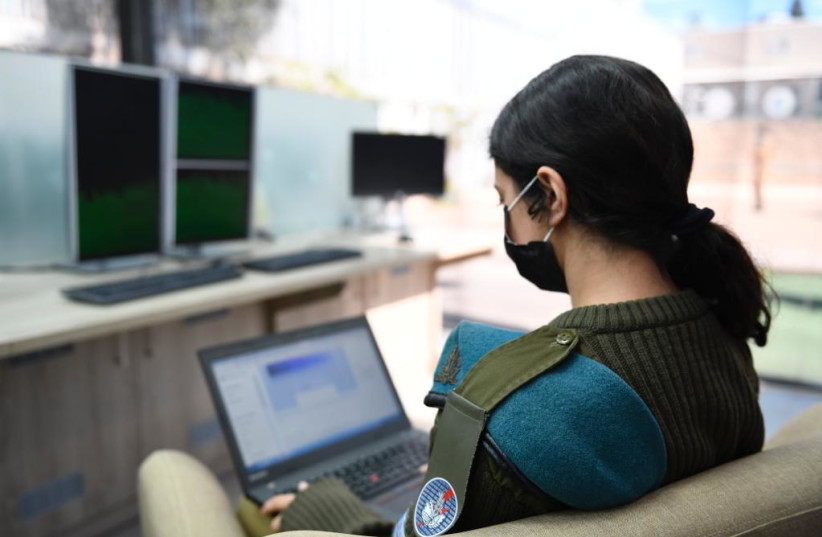
The digital transformation of the IDF was one of Chief of Staff Lt.-Gen. Aviv Kohavi’s top priorities when he began his term; not only in order to further strengthen the military but to provide the best for its troops.
“We are carrying out a digital transformation in the military in order to provide the best care possible for all soldiers,” said Col. Tali Caspi-Shabbat, commander of the Shachar Unit in the IDF’s C4I Directorate.
Her unit is responsible for all systems, applications and data in the military that are not related to combat, but rather human resources, logistics, medicine and the welfare of troops.
According to Caspi-Shabbat, the transformation of the IDF into a more digital military is a fundamental change that affects everyone in it.
“The army provides everything to the soldier from the moment they enlist,” she said. “It’s like a country in itself and is responsible for everything until the soldier is released from service. And for that, we need to have the most advanced digital systems possible.”

However, changing the IDF is not easy, especially when it relied on IT systems built in the last millennium and that until five years ago relied on fax machines instead of encrypted chats and emails.
The Shachar Unit, based in a nondescript and relatively small base in central Israel, is the main IT body in the IDF and is responsible for all innovations and developments in the worlds of digital and data.
As part of the Lotem Technology Division, it is the army’s largest software house and is responsible for increasing the ability of the military to streamline resources, reduce bureaucracy and improve the service of recruits and career officers.
“When you are carrying out a digital transformation, you need to understand the military in order to know what will work and what won’t,” Caspi-Shabbat said. “Before the idea of a digital transformation, the soldier was never really thought of – only career officers.”
Focusing on individual soldiers and their needs is important, she said.
“To come from within the military and make it better by providing a better experience to soldiers” not only saves money but also helps cut all the red tape that the military is known for.
One application the unit is working on is helping troops get better access to healthcare.
“The lack of doctors in the military and the need to provide immediate care puts a lot of pressure on medical doctors in the army,” she said.
The new application will give troops the ability to find doctors, including specialists, and appointments close to where they are. The application asks the soldier basic intake questions including their symptoms. Based on those, the soldier is told where to go – either to an emergency room, a nurse or to have them book an appointment with a doctor at a clinic.
“A lot of people cancel appointments, and with the new user-friendly application, we have been able to find 600 more appointments without hiring even one more doctor,” she said.
Another aspect the unit is responsible for is how cadets are recruited into the IDF. This summer the army announced that it would be changing the way it tests new recruits with a focus on the skills, abilities and needs of the military.
With more than 100,000 cadets drafting each in cycle, the military has mountains of data to sift through in order to place recruits in the roles most suitable for them.
“We carried out a data science study, and after the in-depth study, we found that there are other metrics that affect the success of the recruit,” she explained. “We looked at which recruits succeeded and in what, as well as what they studied in high school as well as their hobbies.”
The military has moved away from placing recruits based on scores they receive on the Quality Index or Kaba (psychometric) figure it uses to assist in the initial placement of recruits. Instead, it has begun assigning recruits in roles according to how suitable they are.
Caspi-Shabbat said that the changes geared toward the individual soldier increase the IDF’s effectiveness.
“We are always looking at the individual and their skills in order to have the best military to protect our country.”







